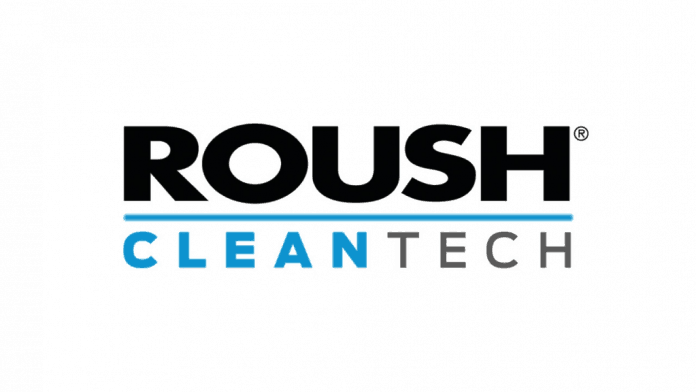LIVONIA, Mich. — Alternative-fuel technology company ROUSH CleanTech, has developed the first available propane autogas engine certified to California Air Resources Board’s optional low oxides of nitrogen emissions standard for heavy-duty engines, with 0.02 grams per brake horsepower-hour (g/bhp-hr). The engine is 90 percent cleaner than the current Environmental Protection Agency’s most stringent 0.2 g/bhp-hr heavy-duty engine standard.
“Last year, we introduced a propane autogas engine that was 75 percent cleaner than the EPA’s emissions standard. But, we knew our next challenge was to meet CARB’s lowest NOx standard at 0.02 g/bhp-hr,” said Todd Mouw, president of ROUSH CleanTech. “Our newest propane autogas engine reinforces ROUSH CleanTech’s commitment to provide vehicle solutions that reduce the impact to the environment while leveraging an abundant, domestically produced fuel that costs less than diesel.”
NOx emissions are regulated under federal air quality standards, because they are known to be harmful to human health and to the environment, contributing to regional ozone attainment challenges, smog and other air quality issues. Heavy-duty diesel trucks are the single largest source of NOx emissions, contributing to smog in a majority of the nation’s most populated urban regions. According to the EPA, operating vehicles with ultra-low emission engines can make significant improvements to regional air quality and reduce a wide variety of human health impacts.
“In Southern California, the development and deployment of near-zero emission vehicle technologies are critical to meeting clean air standards,” said Wayne Nastri, executive officer for the South Coast Air Quality Management District. “We congratulate ROUSH CleanTech on this achievement.”
This new certification covers all of ROUSH CleanTech’s 6.8L V10 3V propane engines for Class 4-7 vehicles. Installation of the new optional ultra-low NOx engines has begun with some 2018 Ford commercial vehicles and Blue Bird Vision propane school buses. ROUSH CleanTech, which has deployed more than 18,000 propane autogas vehicles, will manufacture both the low-NOx 0.05 and ultra-low NOx 0.02 g/bhp-hr propane engines.
School, shuttle and transit buses and Class 4-7 medium-duty trucks equipped with ultra-low NOx engines are expected to be very competitive in seeking funding from the Volkswagen Environmental Mitigation Trust settlement.
“The certification of this ultra-clean propane engine could not have come at a more opportune time, as private and public fleets can now begin applying for a piece of the $2.9 billion Volkswagen settlement funds,” said Tucker Perkins, president of the Propane Education & Research Council. “The settlement is meant to fund projects that cost-effectively reduce NOx emissions, so vehicles powered by the new ultra-low NOx ROUSH propane autogas engine are an ideal fit for accomplishing this goal.”
About ROUSH CleanTech
ROUSH CleanTech, an industry leader of alternative fuel vehicle technology, is a division of Roush Enterprises, based in Livonia, Michigan. ROUSH CleanTech designs, engineers, manufactures and installs propane autogas and electric fuel system technology for medium-duty Ford commercial vehicles and school buses, and compressed natural gas fuel systems for school buses. As a Ford QVM-certified alternative fuel vehicle manufacturer, ROUSH CleanTech delivers economical, clean and domestically produced fueling options for fleets across North America. ROUSHcleantech.com
















